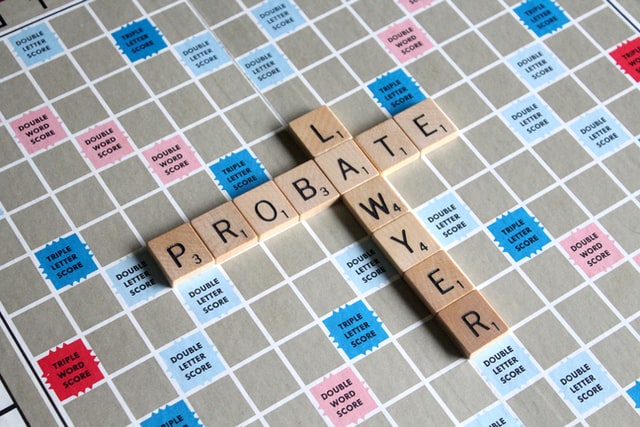When it comes to protecting your assets and ensuring your loved ones are taken care of, estate planning is an essential step that should not be overlooked. Understanding the probate process is a critical aspect of estate planning, as it ensures your assets are distributed according to your wishes and significantly eases the legal and emotional burden on your loved ones after your passing. Probate can be a complex and stressful process, but with the right knowledge and preparation, it can be managed effectively.
For those seeking guidance on navigating probate in New Jersey, it is recommended to consult with a legal professional who is well-versed in the state probate laws and can provide valuable advice. At The Matus Law Group, our experienced New Jersey probate lawyers can assist you every step of the way to facilitate a smooth process, clarify common probate misconceptions, and help you achieve your estate planning goals. With our support, you can further ensure that your estate is managed and distributed as you intended, with minimal stress and legal hurdles for your loved ones. Contact us today at (732) 785-4453 to schedule a consultation.
What Exactly is Probate Anyway?
Probate is a process that occurs shortly after a person’s death. Here in New Jersey, it takes place no sooner than eleven days after a death. The steps of probate include the following:
- Validating the will
- Identifying the property of the decedent
- Appraisal of the decedent’s property
- Payment of the decedent’s outstanding debts
- Payment of estate taxes
- Distributing the property in the estate in accordance with the decedent’s will or intestate law
Depending on the size of the estate and how complicated its organizational structure is, the probate process can sometimes be very time-consuming. It can also become expensive as court fees add up.
Who Inherits the Estate if There is No Will?
When someone dies without a will, his or her estate is distributed among heirs in accordance with intestate law. Essentially, your assets will be given to your closest living kin.

New Jersey Probate Process
If an estate fails to meet the requirements for simplified procedures and its assets necessitate the probate process, it will likely follow the standard probate process in New Jersey. Below are the essential steps of the probate process in New Jersey:
Initiating Probate
The probate process in New Jersey commences when an individual passes away, with the submission of their will to the Surrogate’s Court situated in the county where the person lived. The court reviews the will for its validity and compliance with legal requirements. It’s crucial to initiate probate promptly since the law requires probate within ten years. Initiating it sooner ensures the efficient distribution of assets and settlement of debts.
Appointment of Executor or Administrator
An important step in probate is appointing an executor or administrator to manage the deceased’s estate. Typically, the deceased would have designated an executor in their will, someone they trusted for estate management. If there’s no designated executor or will, the court appoints an administrator with similar responsibilities to ensure assets are distributed according to intestate laws.
Notifying Heirs and Beneficiaries
After the appointment of the executor or administrator in New Jersey, it becomes their responsibility to notify all heirs and beneficiaries of the estate. This includes informing interested parties such as the deceased’s spouse, children, and close relatives about the probate proceedings. Additionally, all individuals named as beneficiaries must be given a copy of the will, accompanied by a comprehensive explanation of their respective entitlements, ensuring the equitable distribution of assets in accordance with the wishes of the deceased.
Managing Estate Assets and Debts
The executor or administrator’s responsibility is to gather and protect the assets left by the deceased. They are required to determine the value of these assets and establish an inventory for the court’s official documentation. In addition to asset management, the executor or administrator must address any debts or obligations incurred by the deceased, such as unpaid bills, taxes, and loans. These debts are typically settled using the estate’s funds before asset distribution to beneficiaries can take place.
Distributing Estate Assets to Beneficiaries
After estate assets have been gathered and appraised, and debts have been resolved, the executor or administrator can proceed with the distribution of assets to the beneficiaries. This must adhere to the instructions specified in the will or, in situations where there is no will, it must align with the intestate laws of New Jersey. This process may necessitate either the sale of specific assets to generate funds for distribution or the transfer of property titles to the designated beneficiaries. Detailed records of every transaction must be maintained and a detailed financial report must be provided to the court.
Closing the Estate
Once all assets have been distributed and all documentation has been finalized, the executor or administrator is obligated to present a financial report to the Surrogate Court for the formal closure of the estate. This report should summarize all financial activities throughout the probate proceedings. Upon the court’s approval of the final accounting, the estate is officially closed, and the executor or administrator is officially relieved from their responsibilities.
Understanding New Jersey’s probate process is crucial as it can be complex and time-consuming. At The Matus Law Group, our New Jersey probate lawyers can guide you through every step of the probate process. With our extensive experience in probate law, we are well-equipped for aspects of estate administration, from paperwork to dispute resolution. Contact us for a consultation to start the probate process efficiently.
| Steps in the Probate Process | Description |
|---|---|
| Initiating Probate | Submit the will to the Surrogate’s Court and begin the probate process within ten years of death. |
| Appointment of Executor/Administrator | The court appoints an executor (if named in the will) or an administrator to manage the estate. |
| Notifying Heirs and Beneficiaries | The executor or administrator informs all heirs and beneficiaries of the probate proceedings. |
| Managing Estate Assets and Debts | Gather and appraise assets, settle debts, and prepare an inventory for the court. |
| Distributing Estate Assets | Distribute the assets to beneficiaries as per the will or intestate laws, after debts are settled. |
| Closing the Estate | Submit a final financial report to the court for approval, formally closing the estate. |
How to Begin Probate
The executor or administrator of the estate is respectively named in the will or appointed by a judge. This person is responsible for filing the paperwork that begins the probate process, which includes the certificate of death and application for probate. These documents must be filed at the Surrogate’s Court in the county where the decedent lived at his or her time of death. If the decedent created an eligible will before passing, the probate court must also validate the will. Then, the executor or administrator notifies creditors and family members that probate is taking place with a Notice of Probate.
What Does the Executor Do During the Probate Process?
During the probate process, the executor must manage the decedent’s assets. This might include ensuring that property (such as a home) is cared for while being appraised and potentially sold to pay off debts and taxes. In New Jersey, if a beneficiary has a developmental disability, the executor is required to post a bond, except in cases of exemption, in accordance with Ronnie’s Law. Once the appropriate proceedings are completed, the court allows the executor to pay debts and divide the remaining assets among the inheritors named in the will.
How Much Does an Estate Have to Be Worth to Go Through Probate in New Jersey?
In New Jersey, whether an estate must go through the probate process primarily depends on the value and type of assets the deceased person left behind. Generally, if the decedent owned assets totaling more than $20,000 and these assets do not have a designated beneficiary or joint ownership, probate is necessary. This value threshold includes various assets such as bank accounts, real estate, and other tangible items.
For smaller estates, New Jersey offers simplified probate options. If the deceased left assets worth no more than $50,000 and there is a surviving spouse or domestic partner, or no more than $20,000 with no surviving spouse/domestic partner, a simplified process involving an affidavit can be used instead of formal probate proceedings.
Do All Assets Pass Through Probate in New Jersey?
No. When dealing with a decedent’s estate in New Jersey, not all assets are required to go through the probate process and it is sometimes possible to avoid probate altogether. Understanding which assets are subject to probate and the scenarios in which you can avoid probate can significantly impact the approach to estate planning and execution.
Non-probate Assets
It’s important to understand that not all assets need to pass through probate. Non-probate assets can bypass this process entirely. These typically include:
- Jointly owned assets, such as those held in joint tenancy or tenancy by the entirety, automatically transfer to the surviving owner.
- Designated beneficiary assets like IRAs, 401(k) plans, or payable-on-death bank accounts.
- Life insurance proceeds and pension benefits that name a beneficiary.
- Real estate with a transfer-on-death deed.
- Assets contained within a revocable living trust.
When Can You Avoid Probate?
In New Jersey, avoiding probate might be simpler than you think. As long as the decedent has a will and his or her total assets are worth less than $10,000, his or her spouse may file an appeal to avoid probate. In the absence of a will, an Affidavit of Surviving Spouse can be filed for estates worth under $20,000. Next of kin can file an appeal if there is no will and the estate property is worth less than $5,000. Bigger estates can also avoid probate but will require other methods to transfer assets to beneficiaries/heirs, such as trusts.
What Happens When a Will is Not Properly Executed?
If a will is not properly executed, probate can be denied by the Surrogate Court. The court would then enter an Order of Doubt or Difficulty and the case would go to the New Jersey Supreme Court.
How The Matus Law Group Can Help You Understand, Navigate, or Avoid Probate
Probate is an important consideration for effective estate planning, as careful navigation and preparation can help streamline the legal processes involved or possibly bypass them altogether. This can save time, reduce costs, and minimize stress for your loved ones. However, probate can often be confusing and emotionally taxing without proper guidance.
At The Matus Law Group, our team of knowledgeable New Jersey probate lawyers can offer personalized guidance throughout the process, from understanding its often complex laws to further ensuring the proper management and distribution of assets as you intended. We can also help executors or administrators with clear explanations and practical advice to fulfill their legal requirements and responsibilities without unnecessary stress.
If you’re looking for professional assistance with probate in New Jersey, our team can provide the support you need during this challenging time. Let us help you manage the legal details so you can focus on what matters most. Call us today at (732) 785-4453 to schedule a consultation and learn more about how we can assist you with your probate needs.



